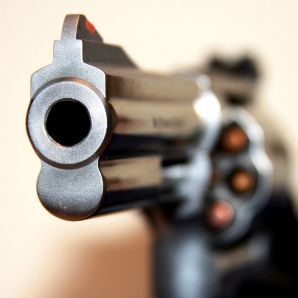 Florida Police are investigating the death of Chico Randolph at a local nightclub after a fight broke out following the Super Bowl. The incident occurred at Legacy Ultra Lounge in Orlando around 2 AM Monday morning. Florida Police are still investigating the incident and are actively seeking 4 dark-skinned men and 1 dark-skinned woman all of which may have heavy West Indian accents for their connection with the shooting of Randolph.
Florida Police are investigating the death of Chico Randolph at a local nightclub after a fight broke out following the Super Bowl. The incident occurred at Legacy Ultra Lounge in Orlando around 2 AM Monday morning. Florida Police are still investigating the incident and are actively seeking 4 dark-skinned men and 1 dark-skinned woman all of which may have heavy West Indian accents for their connection with the shooting of Randolph.
According to Florida Police reports, there were approximately 100 people inside the establishment when the first fight broke out at 1:30 AM. Police believe the cause of the altercation started after smoke was blown into another’s face. The fight was broken up and escalated again around 2 AM when the victim was shot. Tragically, he was not only shot twice, his body was also trampled over as people fled the establishment.
Since the suspects are still in the wind, no formal charges have been filed. However, from the information provided from this article, there potentially could be a good case for Homicide or Murder. In Florida, Murder is defined under F.S.A. § 782.04 as the unlawful killing of a human being when perpetrated by any act imminently dangerous to another and evincing a depraved mind regardless of human life, although without any premeditated design to effect the death of any particular individual.
 Jacksonville Criminal Defense Lawyer Blog
Jacksonville Criminal Defense Lawyer Blog






